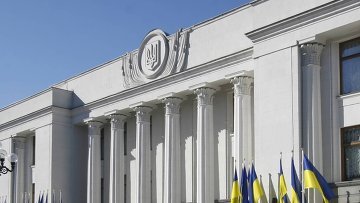MOSCOW, November 21 (RAPSI, Ingrid Burke) - The European Court of Human Rights (ECHR) held Tuesday that Ukraine did not violate the right to respect for private and family life by virtue of its courts’ refusal to order the redaction of allegedly defamatory information linked to the infamous 1942 Death Match soccer game between Ukrainian and German players.
According to the judgment, applicant Vladlen Putistin’s father Mikhail participated in what has come to be known as the Death Match – an August 9, 1942 soccer game played between Ukrainian team FC Start and German team Flakelf. FC Start consisted of a number of professional soccer players who by that point were working in a bakery. Flakelf consisted of German pilots, soldiers, and technicians.
Much to Flakelf’s alleged chagrin, FC Start won the match 5-3, allegedly resulting in “serious repercussions for the players, who were arrested and sent to a local concentration camp where four of the players were eventually executed,” according to the judgment.
In April 2001, newspaper Komsomolska Pravda published an article titled “The Truth about the Death Match” detailing plans for an upcoming film based on the game. The article listed the names of four players from the team Dynamo Kiev, but excluded the name of Putistin’s father.
At one point the article stated: “Actually, there were only four Dynamo players in the Start team created by the director of the local bread factory. And these [were the players who] were executed. And other [football] players worked in the police, collaborated with the Gestapo.”
The younger Putistin turned to the Ukrainian courts, seeking a retraction and compensation from the newspaper and the journalist who had written the piece based on claims that the information contained in the article had been untrue.
Specifically, Putistin claimed that the article suggested that his father had collaborated with the Germans in 1942. Toward this end, he submitted evidence to prove that his father had never been accused by the authorities of collaboration, and that his father had been detained in a concentration camp after participating in the Death Match.
In December 2001, a Kiev district court held that the claim should be rejected owing to the facts that Putistin was not directly affected by the publication, and that the article mentioned neither Putistin nor his father by name. Furthermore, the court reasoned that the piece did not allege that the father had collaborated with the Gestapo.
The judgment was upheld on appeal, and a further attempt to appeal was rejected by the Supreme Court.
In May 2003, Putistin turned to the ECHR, claiming that his right to respect for private and family life, as guaranteed by Article 8 of the European Convention of Human Rights (Convention), had been violated by virtue of the refusal of the Ukrainian courts to order a retraction of the allegedly defamatory information.
The ECHR found that Ukraine did not violate the Convention by virtue of the article, stating: “In these circumstances, that is, where the applicant’s Article 8 rights were marginally affected and only in an indirect manner by an article which reproduced statements by the maker of a proposed historical film, the Court considers that the domestic courts did not fail to strike an appropriate balance between the applicant’s rights and those of the newspaper and the journalist.”
In a concurring opinion, Belgian ECHR Judge Paul Lemmens added that the contested statements were tempered elsewhere in the piece by statements provided to the journalist by other experts.
Specifically, the concurring opinion pulled the following quote from the story, attributed to the deputy director of the Kiev History Museum, citing photos taken after the match that remain privately archived: “On the field and after the game the atmosphere was absolutely sporting. The tragedy happened half a year later. It is true that the players of Dynamo were placed in a concentration camp, but not as a result of their victory. In the bakery where they used to work, the frequency of thefts increased.
And on 23 February 1943 the members of the Kyiv-based underground movement set the mechanical plant on fire. The Nazis’ answer was a punitive action, shooting hostages from the concentration camp. This included the football players ...”
According to Judge Lemmens, the latter quote conveys to the reader the extent to which events surrounding the Death Match remain open to interpretation.



